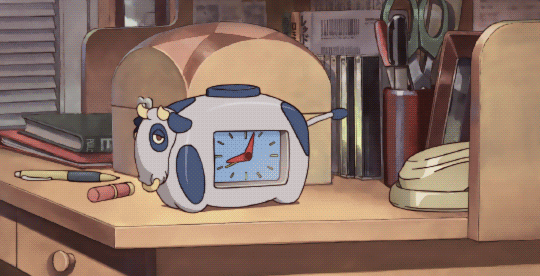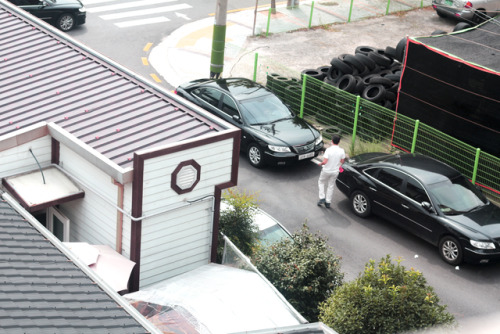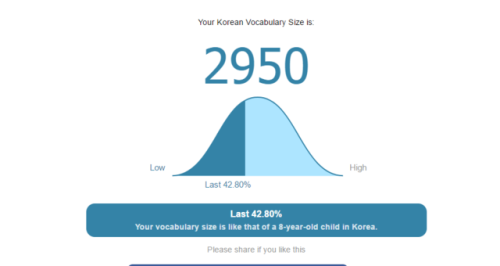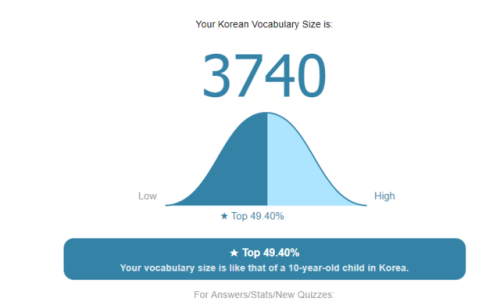#langblr
Chopstick Taboos
Like all utensils, chopsticks have their own set of etiquette. This is a list of the 10 main Japanese taboos for using chopsticks to help improve your table manners.
お箸 おはし ohashi chopsticks
箸置き はしおき hashioki chopstick rest

- 移り箸 うつりばし utsuri-bashi
Do not move your chopsticks back and forth above the food, trying to decide what to eat first. Decide what you want to eat before you move your chopsticks to the item. - 渡し箸 わたしばし watashi-bashi
Do not put down your chopsticks on bowls like a bridge to rest them. Instead, use a chopstick rest, or fold up your chopsticks paper package to make a rest. - 刺し箸 さしばし sashi-bashi
Do not stab your food with your chopsticks. Instead, pick it up or request different silverware if it is too difficult. - 寄せ箸 よせばし yose-baishi
Do not use your chopsticks to move the plates or bowls closer, because then you will be dragging the tableware along the table. Always use your hands to move the plate or bowl. - 探り箸 さぐりばし saguri-bashi
Do not use you chopsticks to dig in the food to look for something. Rather, eat the food in the shape that it comes in and from the top to the bottom of the bowl or plate. - もぎ箸 もぎばし mogi-bashi
Do not eat the small pieces of food off of your chopsticks. Instead, ignore it, or remove it with a paper towel. - かき込み箸 かきこみばし kakikomi-bashi
Do not put your mouth on the bowl and use chopsticks to shovel food into your mouth. Instead, pick up the item and carry it to your mouth with small bites. - 振り上げ箸 ふりあげばし furiage-bashi
Do not use chopsticks to point at people or at things. It’s best not to point with your finger either, but rather to explain using words. You can point at menus, but not at people or things far away. - 拾い箸 ひろいばし hiroi-bashi
Do not pass food from chopstick to chopstick. During funerals, the remaining bones of a loved one are collected with chopsticks and can be passed between chopsticks during collection. Thus, passing food between chopsticks is considered bad luck. If you would like to pass food to someone, put it on a plate or a bowl for the other person to pick up. - 立て箸 たてばし tate-bashi
Do not stand your chopsticks upright in your food. Chopsticks are stood upright in offerings (usually of rice) to those who have departed. Thus, doing so during a meal is considered bad luck. Instead, place your chopsticks on a chopstick rest.
Information from Let’s ask Shogo
ヲタ恋☆単語①
For book club on the Japanese language learning Discord server Seitokai’s Nihongo, we read the ヲタクに恋は難しい manga. Thanks to a few dedicated people (like @onigiriforears&@sienne-k) I have a huge vocab list to pull from. I am going to go through and revise the list, and as part of this process I will be posting mini vocab lists.

JLPT N3 Vocabulary - Ep 0/1
以来 いらい since, henceforth
参加 さんか participation, joining, entry
同僚 どうりょう coworker, colleague, associate
隠す かくす to hide, to conceal
行動 こうどう action, behavior, conduct
隠し通す かくしとおす to keep hidden, to keep a secret, to continue to conceal
理解 りかい understanding, comprehension, sympathy
飽きる あきる to get tired of, to lose interest in
当てる あてる to hit, to expose, to guess (an answer)
支度 したく preparation, arrangements
余裕 よゆう surplus, margin, leeway
制限 せいげん restriction, restraint, limit
燃える もえる to burn, to get fired up
黙る だまる to be silent, to say nothing
お互い おたがい each other, one another
対象 たいしょう target, object (of worship, study, etc.), subject (of taxation, etc.)
失望 しつぼう disappointment, despair
可能 かのう possible, potential, feasible
交際 こうさい (romantic) involvement, dating
嫁 よめ bride
豊富 ほうふ abundant, plentiful, rich
唯一 ゆいいつ only, sole, unique
重視 じゅうし regarding as important, attaching importance to
This summer I have a couple goals to complete
- stay in shape
- read a bunch
- get better at spanish
- journal
thats it, just writing this down to stay responsible!
хозяин - (n) boss, chief, employer; landlord; owner, proprietor
настроение - (n) emotions, mood, spirits
чудак - (n) strange person, eccentric
спор - (n) dispute, controversy, argument
преступник - (n) criminal
саботаж - (n) sabotage
полиция - (n) police

Review/Oбзор
завистливый - (adj) envious
бескорыстный - (adj) unselfish
бескорыстный труд - labor of love
ценить - (v) to appreciate, to value highly
вздыхать/вздохнуть - (v) to sigh; to yearn for, to pine after
ухаживать - (v) to take care of, to look after; to court, to date
заигрывать/заиграть - (v) to flirt; to make advances
сердце - (n) heart; temper; anger; darling, love, sweetheart
пара - (n) couple, pair
New Words/Hовые Cлова
рот - (n) mouth
знакомый - (adj.) familiar, acquainted (with); (n) acquaintance, friend
любить/полюбить - (v) to love, to like, to be fond of
страсть - (n) passion; strong love; strong obsession with, attraction to some activity
Review/Oбзор
страшно - (adv) terrifyingly; very, very badly
тотчас - (adv) immediately, at once
наверняка - (adv) certainly, for sure; safely
весело - (adv) happily, merrily, cheerfully
безполезно - (adv) uselessly
вдруг - (adv) suddenly
New Words/Hовые Cлова
чудно - (adv) wonderfully, beautifully
мрачно - (adv) gloomily, dismally
только - (adv) only, but
уже - (adv) already
im back-ish! wll be on when i can, but ill set a queue to stay active :)
영화 - Film
영화관 - Cinema
극장 - Theater
지금 - Now
상영 (중) - Showing/screening
상영작 - A film showing in cinemas
시간표 - Time table
예매하다 - To book/reserve
날짜 - Date
시간 - Time
얼마 - How much
배우 - Actor
보다 - To see
좋아하다 - To like
영화를 볼까요? - Shall we see a film?
어떤 영화를 보고 싶어요? - What film do you want to watch?
저는 이 영화를 보고 싶어요 - I would like to see this film
저는 이 배우를 좋아해요 - I like this actor
언제 보고 싶어요? - When would you like to see it?
오늘 저녁에 상영작 해요? - Is it showing this evening?
네, 6시 30분에 시작해요 - Yes, it starts at 6:30
표는 얼마예요? - How much is the ticket?
예매 됐어요 - It is booked
A&R

This honorific marker should be added to verbs when speaking with someone who deserves respect i.e. parents, people older than you, teachers, doctors… When talking about yourself you don’t use this form!
(The infinitive form of ~(으)시 is ~(으)시 + 어 = ~(으)셔)
Present tense:
(Remember 다 is dropped from the dictionary form of the verb)
Verb stem ending with a consonant + 으세요
Verb stem ending with a vowel + 세요
앉 + 으세요 = 앉으세요 - To sit
읽 + 으세요 = 읽으세요 - To read
가 + 세요 = 가세요 - To go
오 + 세요 = 오세요 - To come
이 + 세요 = 이세요 - To be (이다)
Irregulars:
(note this isn’t the case for all verbs as there are some regular ones too!)
ㄷ Irregular:
Just like polite present tense conjugation (아/어/해요), some verbs have their final ㄷ dropped and replaced with ㄹ
- 듣다 - To listen
The final ㄷ is dropped and replaced with ㄹ + 으세요 =
들으세요 - 걷다 - To walk
The final ㄷ is dropped and replaced with ㄹ + 으세요 =
걸으세요
ㄹ Irregular:
The final consonant ㄹ is dropped
- 살다 - To live
Remove the final ㄹ + 세요 (since the verb now ends with the vowel ㅏ) =
사세요 - 알다 - To know
Remove the final ㄹ + 세요 (since the verb now ends with the vowel ㅏ) =
아세요 - 열다 - To open
Remove the final ㄹ + 세요 (since the verb now ends with the vowel ㅕ) =
여세요
ㅂ Irregular:
If ㅂ is followed by a vowel, the ㅂ is dropped and 우 is added
- 덥다 - To be hot
Remove the ㅂ and add 우 + 세요 =
더우세요 - 무섭다 - To be scary
Remove the ㅂ and add 우 + 세요 =
무서우세요
ㅅ Irregular:
Just like polite present tense conjugation (아/어/해요), the ㅅ is dropped but the vowels are not contracted (example below), therefore even if the final character is a vowel 으세요 should be added
- 낫다 - 나아요 (Present tense) - To get better
Drop the final ㅅ + 으세요 =
나으세요 - 붓다 - 부어요 (Present tense) - To swell/pour
Drop the final ㅅ + 으세요 =
부으세요
⭐️A&R⭐️
진짜 오랜만이에요! 보고 싶었어요

Animal Crossing: New Horizons was finally released! We have been waiting years for this moment and couldn’t be happier now its here! We can also thank Animal Crossing: New Leaf for our friendship - without it we probably wouldn’t be such good friends, and probably wouldn’t have made this blog!
Anyway, we hope you are all having so much fun ~ in your homes ~ exploring your new islands, we’d love to see what you guys have done! Send us an ask and we can exchange friend codes and play together!
동물의 숲 - Animal Crossing (Trans. Animal forest)
모여봐요 - New Horizons (Trans. Come on/Gather round)
튀어나와요 - New Leaf (Trans. Pop out)
타운으로 놀러가요 - City folk/Let’s go to the city (Trans. Let’s visit the town/Let’s play in town)
놀러오세요 - Wild world (Trans. Come in to play)
동물들의 한국 이름! - The animals Korean name!
여울 - Isabelle
켄트 - Digby
고북 - Tortimer
너굴 - Tom Nook
콩돌밤돌 - Timmy and Tommy
낯선 고양이 - Rover
에이블 시스터즈 - Able sisters
고옥이 - Sable
고순이 - Mable
케이트 (고숙)- Labelle
카트리나 - Harriette
그레이스 / 봉팔이 - Gracie
리사 - Reese
리포 - Cyrus
부엉 - Blathers
부옥 - Celeste
도루묵씨 - Resetti (씨 is a polite name particle, meaning Mr/Mrs/Miss…)
늘봉 - Leif
파론티노 - Phineas
죠니 - Gulliver
마스터 - Brewster
A&R
전 - Before / ago
후 - After / later/from now (in)
~에 is added as it is a time particle
저는 5 분 전에 출발했어요 - I left 5 minutes ago
저는 5 분 후에 출발할 거예요 - I’m leaving in 5 minutes from now
~기 is added to the verb stem when 전 is used after a verb
~은/ㄴ is added to the verb stem when 후 is used after a verb (은 is added if the verb stem ends in a consonant, ㄴ is added if the verb stem ends in a vowel)
직전에 - Just before
직후에 - Right after
저는 학교에 가기 전에 아침을 먹어요 - I eat breakfast before I go to school
비가 오기 전에 저는 갔어요 - I went before it rained
저는 수업 직전에 숙제를 했어요 - I did my homework just before class
영화를 본 후에 친구는 만날 거예요 - After the film I will meet my friend
그 책을 다 읽은 후에 저도 빌려 주세요 - Please lend me that book after you have finished reading it
저는 저녁을 직후에 텔레비전을 봐요 - I watch TV right after dinner
A&R

테마파크 - Theme park
입장료 - Admission/entrance fees
놀이 기구 - Amusement park rides
타다 - To ride
관람차 - Ferris wheel
회전목마 - Carousel
롤러코스터 - Rollercoaster
동물 - Animals
줄 - Line/queue
머리띠 - Headband/Alice band
즐겁다 - To have fun
놀이공원에 가는 것은 재미있을 거예요 - It will be fun to go to an amusement park
놀이공원 같이 가고 싶어요! - I want to go the amusement park together!
입장료 얼마예요? - How much is the entrance fee?
뭘 타고 싶어요? - What do you want to ride?
놀이 기구 앞에 줄이 너무 길어서 한 시간 반을 기다렸어요 - Since the line in-front of this ride was so long I waited an hour and a half
다음에 관람차를 탈까요? - Shall we ride the Ferris wheel?
이 놀이 기구는 제가 가장 좋아하는 것이에요 - This ride is my favourite
놀이공원에 가면 머리띠 해야 돼요! - You have to wear a headband/Alice band when you go to an amusement park!
우리는 놀이공원에서 동물들을 봤어요! - We saw animals at the amusement park!
저는 오늘 매우 즐거웠어요 - I had a lot of fun today
저는 가족들이랑/친구들이랑 같이 놀이공원을 갔어요 - I went to an amusement park with my family/friends
A&R

언제나 / 항상 - Always
자주 - Often
가끔 - Sometimes
보통 - Usually
별로 (+안) - (not) Really/very much
거의 (+안) - Almost (never)
전혀 (+안) - (not) At all
결코 - Never
매주 - Every week
매일 - Every day
늦게 - Lately
요즘 - These days
꼭 - Without fail/certainly
그동안 - In the mean time
매주 얼마나 자주 운동해요? - How often do you exercise each week?
요즘 별로 운동을 안해요 - I don’t exercise much these days
저는 보통 주말에 일어요 - I usually work on the weekends
저는 매주 춤을 연습해요 - I practise dancing every week
제가 요즘은 텔레비전을 거의 안 봐요 - I almost never watch television these days
제 친구가 항상 공부하는데 저는 보통 공부를 안해요 - My friend always studies but I usually don’t study
저는 보통 학교에 가기 위해 일찍 일어나지만, 오늘은 우연히 늦게 일어났어요 - I usually get up early to go to school, but today I accidentally got up late
⏰A&R⏰

좋아하다 - To Like
뭘 좋아해요? - What do you like?
Kpop을 좋아해요 - I like Kpop
샤이니를 좋아해요 - I like SHINee
태연의 신곡을 좋아해요? - Do you like Taeyeon’s new song?
굉장히 좋아해요 - I really like it
어느 계절 좋아해요? - Which season do you like?
여름을 좋아해요 - I like summer
저는 따뜻한 날씨를 좋아해요 - I like warm weather
시간이 있을 때 뭐 하는 것을 좋아해요? - What do you like to do when you have time?
저는 레드벨벳 노래 듣는 것을 좋아해요 - I like listening to Red Velvet songs
저는 드라마 보는 것을 좋아해요! - I like watching dramas!
싫어하다 - To dislike/hate
왜 싫어해요? - Why don’t you like it?
저는 일찍 일어나는 것을 싫어해요 - I hate getting up early
저는 학교에 가는 것을 싫어해요 - I don’t like going to school
저는 더운 날씨를 싫어해요 - I hate hot weather
저는 큰 개를 싫어해요 - I don’t like big dogs
저는 귀신을 싫어해요 - I hate ghosts
저는 높은 곳을 싫어해요 - I hate high places
A&R

so you’re telling me i’ve been freaking out over my linguistics and chinese characters’ finals for over a month and the one exam i should’ve actually been afraid of was jAPANESE??? THE SAME JAPANESE WHOSE MIDTERM I NAILED LESS THAN A MONTH AND A HALF AGO???????
mucho kanji
Sometimes your dreams feel impossible. I’ve wanted to come to Korea for 8 years of a 20 year life and I’m here. I wake up to this every day, it’s wild man.
Post link
I’ve been in Korea for just about three months and the progress is slow but it’s there! I haven’t formally studied much outside of my 3 weeks at Ehwa so I need to hit the books.
Post link











